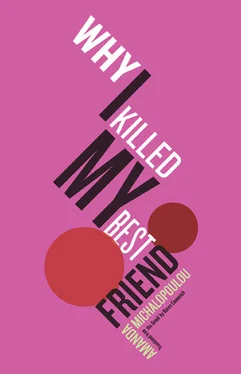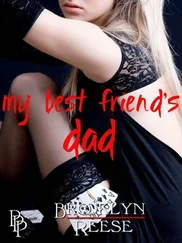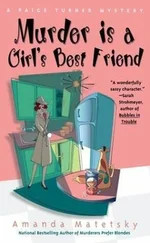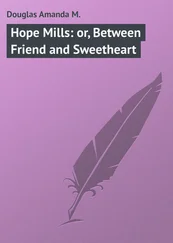I glance down at the photocopy in my hand: A political space is the material manifestation of a particular politics. When that politics is exercised by the people, the resulting space lies outside the institutions and operations of the state. It is a free space. State-exercised politics, on the contrary, mutilates and destroys the multiplicity of spaces in order to project a single space, the space of power, of the ruling class. In Stalinist politics the only existing space is the Party. In a parliamentary system it is the state itself. Even the smallest splinter group of the opposition inevitably organizes itself around elections and appearances in the mass media. Its influence is thus limited to whatever crumbs the state throws to those marginalized by the great parliamentary machine. Orgapolis takes its own politics as a starting point; it attempts to foster conditions under which people can think and act in ways that enable us to imagine a true democracy .
So my hope wasn’t entirely unfounded: there is a space where you can escape power relations. You carve a circle, within which you are free to think as you please, though in a manner no less political. You don’t engage in dialogue with power on its terms, in its space; rather, you cultivate your own. Power still slaps, still pinches — but if you carve that circle, it doesn’t hurt quite as much.
“Just tell me,” Mom says. Her shrill voice says it all.
“I got in!” I hold the receiver away from my ear so that Anna can hear too.
“I lit a candle, I’ll have you know!”
“Oh, Mom, prayer isn’t enough with a thing like this.”
“It’s more than enough, young lady. God can do all things.”
“I really wonder how you came out of a mother like that,” Anna says, after hugging me and saying a few merdes. “Does she know you take to the streets with Molotovs?”
What about you, Anna? Do you have any idea how it feels to believe in the colonial enterprise and to have to leave Africa because a group of poor blacks, led by a schizophrenic white man, breaks into your house? Because, along with your grandmother’s jewels, not to mention your daughter, they rob you of the thing that’s most important to you in the world — your illusions? Do you have any idea how it feels to be forced to go back to a place you’d hoped never to set foot in again, thousands of kilometers away from fairytales, toga parties, afternoon tea with Mrs. Steedworthy? It’s one thing to pretend you’re English in Ikeja, another to return to Greece in 1976. You don’t speak, just stuff your mouth with food; your storage room is gone, so you pile things up in your mind. At some point you start to overflow; your thyroid goes out of whack. Your life, too.
Anna and Kayo come to Orly to see me off. Even in this final moment, Kayo won’t kiss me for real, he just squeezes my hand and whispers in my ear, “Oh, my little African.” He promises to keep attending Orgapolis meetings and to send me their proclamations. Did someone there catch his eye? He’s not exactly the type of person to be overcome with passion for political collectives. He’s too self-absorbed to get involved in the lives of others.
Anna gives me a packet of chouquettes for the plane. I stare at my shoes to keep from crying. As I walk through passport control I’m afraid I’m saying goodbye to real life, going off into the unknown. I’ve forgotten all about my family back home, forgotten about Christophoros, forgotten that I’m now a student in the School of Fine Arts.
“Oh, child, what happened to you?” Mom lets out one of her customary little cries.
“What do you mean?”
“You’re skin and bones, I hardly recognize you. And what kind of clothes are those? You look like a tomboy.”
I shut myself up in my room to escape her complaints. Christophoros asks over the phone: “Don’t you love me anymore?” I hear myself answering woodenly: “There are lots of different kinds of love.” At night in bed, I’m restless. I try to re-discover my vagina — I don’t need a partner; the memory of Kayo, my prince, is enough. The phone rings in the night but by the time I get to it, there’s no one on the line. My mother treats me just as she should, as if I were an unhappy princess out of a fairytale: each morning she brings me my breakfast on a tray, each afternoon she takes it back, untouched. And just as in a fairytale, I only start to eat again, if only bread and jam, when a letter arrives from my prince: My little African, Paris is empty without you. Joel told me at the very last minute about an Orgapolis meeting. I called Anna. We got there late, and when we walked in someone was saying, ‘A real political gathering is intellect in action. Before the gathering, we don’t know what might happen, what will be decided. And we leave a true political gathering stronger and more capable.’ I thought you’d like that. Joel invited some of us back to his house and we dropped LSD. I suddenly saw you, as if in one of those drawings you showed me, wearing clothes that were on fire, with snakes all around, and I was so worried that I called you in the middle of the night, but no one answered. Where are you? When are you coming back?
I leap out of bed, leave a message on his answering machine: “Kayo, Athens is empty without you, too. I heard the phone ringing. I was in bed under the sheet, thinking of you at that exact moment — do you think we’ve met in a previous life?”
I slowly ease back into my everyday reality. I’m exhausted. School, my classmates — it all seems so petty to me, somehow lacking. All that’s different is my art. I start to use party materials: stickers, flyers. I cut them up and paste them back together so that New Democracy politicians appear on PASOK flyers and vice versa. I hesitate to do the same for the left, thinking primarily of Antigone and the rector’s wife. But in the end, my hands have lives of their own.
And as it turns out, my hands know what they’re doing. In the general elections that October the conservatives clean up, thanks to the convenient neutrality of the Communist Party.
“If it were up to me, I’d shave all their heads and send them in for life,” Dad says, pounding his fist on the coffee table. It’s the anniversary of the events at the Polytechnic, Athens is burning and Dad is trying to restore order from his spot in the living room.
Oh, Dad, if you only knew how badly I want to be out there with them right now, throwing rocks, smashing storefronts! If only I could talk to you about my view of activism, my way of understanding revolutionary initiative. They cram us all into the chicken coop of parlimentarianism, feeding us crumbs, while outside are vast fields, thousands of untouched acres of free thought. We sit here side by side on the couch, taking turns with the remote control, and yet we’re living on different planets. You still belong to Africa, to the oil companies that exploit people who look like Kayo. Meanwhile, I dream up posters, dream of marching against them — against you. I dream of violence, too. Sometimes a little violence is just what’s needed. But if I go down into the streets with a stick, I won’t be your daughter anymore.
I’m twenty years old. Anna sends me a vibrator for my birthday — she’s completely out of control. Kayo sends me a plane ticket to Paris.
“Where will I stay?” I ask over the phone. “Anna’s place is a total bachelorette pad these days.”
There’s a brief silence. “You’ll stay with me,” Kayo says.
With him.
Kayo’s apartment is on the outskirts of the Marais. A large, sunny studio with a double bed and a fold-out couch. The first night we sleep together in the bed, in an asphyxiating embrace, fully dressed. In the morning he kisses me gently on the face, all over, everywhere but on the mouth, and in my despair I bite his shoulder, hard. We stay in bed all day, suspended between sleep and waking. Like a couple. Almost. Kayo tells me about his mother. I’ve heard about her before, of course. He says he’ll make me croque monsieur the way she used to, and then a dessert she used to make, too. Why do women do that to their sons? Unconsciously, perhaps, but they still do it: they create a romantic idyll that will take the place of each failed love story in their lives.
Читать дальше












